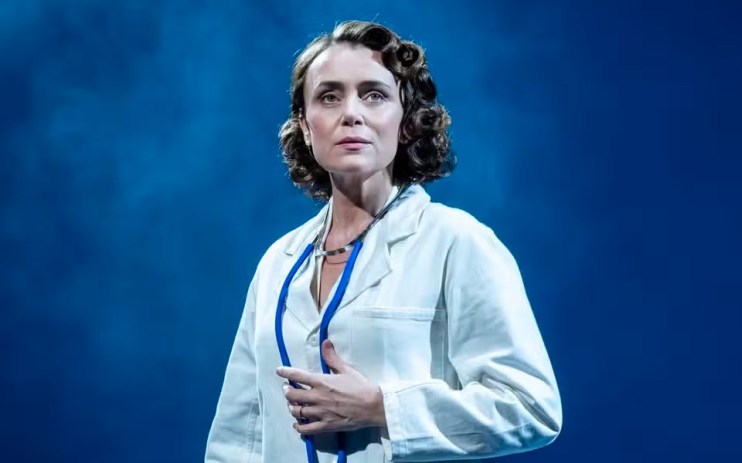The Human Body at Donmar: Keeley Hawes returns to the stage

There is something overwhelmingly nice about The Human Body, a play that marks the return to the stage of small-screen sweetheart Keeley Hawes.
Written by Lucy Kirkwood (The Welkin, Mosquitos), it follows Iris Elcock, a Shropshire GP, Labour councillor and soon-to-be member of parliament. Set in 1948, it’s a time of turmoil and change, with Nye Bevan in the process of forcing through his vision of the NHS in the face of protest from the country’s doctors, even as the sheen of the Labour government in which he served was beginning to fade.
With Michael Sheen’s Nye – also about Bevan and his NHS – opening at the National Theatre next week, the healthcare system is clearly playing on the national psyche, perhaps unsurprisingly given the daily headlines about waiting times, funding shortages and overworked staff.
Kirkwood’s play is a strange thing, a kind of paean to the Golden Age of Hollywood, painting a story of a drab, painful time – England still reeling from the physical and mental scars of war – from which the unhappily married Iris longs to escape.
That escape comes in the form of a brief encounter with a handsome stranger on a train, a plot lifted pretty much wholesale from the 1945 David Lean film Brief Encounter. The stranger is George Blythe (Jack Davenport), an actor who emigrated to Hollywood and missed the war, whose alcoholic mother happens to be a patient of Iris’s.
The play takes place on a rotating blue stage featuring only blue props – baskets, gurneys, tables, cigarettes – for reasons that aren’t entirely clear (blue is the colour of the NHS, I suppose?). But when Iris meets George their scenes are filmed and projected behind the set in high-contrast black and white, mirroring the noir love story taking place in Iris’s head. It feels a little hackneyed – is anyone not incorporating live film into their plays these days? – but it’s also very sweet, largely down to the genuine chemistry between the two leads.
The play itself is slightly muddled, unsure if it’s a love story set against the backdrop of the founding of the NHS, or a play about the founding of the NHS that happens to feature a love story. It tries to be both and ends up at least half an hour too long. Still, it’s worth seeing for those performances, and perhaps as a primer for next week’s production of Nye.
• The Human Body is on at the Donmar until 13 April
